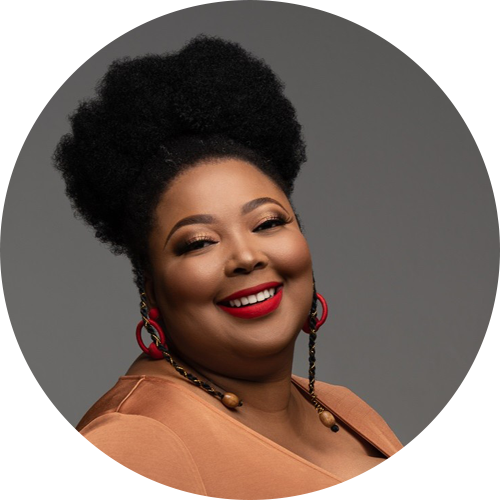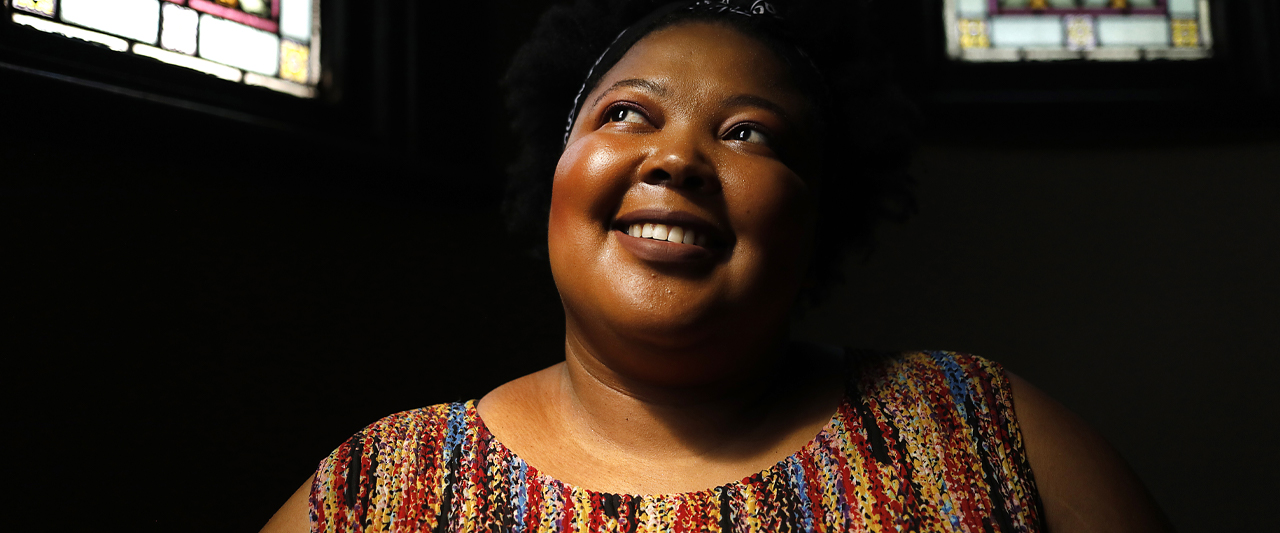If you haven’t heard of Dr. Tlaleng Mofokeng—known popularly as Dr T—you have somehow missed her ubiquitous presence on radio, TV, social media and numerous other platforms. She’s a medical doctor, sex expert and health activist. She’s a member of the South Africa Commission on Gender Equality and was recently appointed as United Nations Special Rapporteur on the Right to Health. Dr. Mofokeng is also the author of A Guide to Sexual Health and Pleasure. She took time from her busy schedule to field some questions from Ipas.

Congratulations on your recent appointment as a UN Special Rapporteur on the Right to Health—and for being the first woman from Africa named to that post. What excites you most about this new role?
For me, the most exciting part is moving my advocacy more global, because I’m an activist at heart. I’ve been doing a lot of work in South Africa advocating for health equity and a human rights framework for health solutions, and now I will get to have my work expressed in global spaces. Being a UN special rapporteur will allow me to give voice to what is happening on the ground. This is important, because we’re all connected, whether it’s through global health politics or global funding.
Speaking of global health politics, what’s been the impact of the Global Gag Rule on access to abortion care in South Africa throughout the years?
When I was a young medical student, abortion was legal in South Africa and had been for many years. But I noticed right away there was a stigma and judgment around abortion services. I did not really understand then where the stigma came from and why it was so sustained, but I thought there had to be something more to it than just a few health-care workers who have bad attitudes.
As I got older and began practicing medicine, I saw the reality of women’s reproductive health as a political issue. When the HIV/AIDS epidemic hit South Africa, many NGOs signed on to the Global Gag Rule so they could get U.S. assistance, even though they knew it would have a negative impact on reproductive health services in their health facilities. They were under a lot of political pressure to make this tradeoff, because of the HIV epidemic. But the willingness of NGOs to make that tradeoff has had a long-term, negative impact on access to abortion care. If you can’t give out abortion information, or make abortion referrals, or provide clinical services, then you are leaving out a large population of people who are really, really vulnerable.
And now, under Trump, the United States has expanded the gag rule. But let’s face it, using the gag rule as a political tool over women’s rights is nothing new, really. Trump is not the first U.S. president to use money and control to exert power over women’s lives in South Africa. It’s unethical, but these are the politics of health. Unless we stop being dependent on foreign aid, we can’t set our own agenda.
What are your thoughts on the growing movement toward abortion self-care, where women manage their own abortion using pills, outside the formal health system?
I absolutely support women having the power to make the decision to manage their own abortion at home. But we have to be careful not to absolve governments of the responsibility to provide abortion services in health facilities. We need to think about access to abortion in totality. Some women may be choosing self-managed abortion only because they lack money for transport and don’t live near a health facility. We need to ensure that anyone who wants an abortion in a public health facility, with support of medical professionals, can do so. At the same time, I completely support women’s right to a self-managed abortion.
Why do so many sexuality education programs not include abortion—and what do you see as the link between sexuality and abortion?
The link is that abortion is one of the possible outcomes of pregnancy. But many sexuality programs don’t include abortion because it’s not considered a “normal” outcome. They tend to romanticize pregnancy and exaggerate what abortion means—as if abortion is only necessary when a woman is raped or sexually abused, as if women must be violated before they can make decisions about their own bodies.
When comprehensive sexuality education (CSE) is done right, it’s not about the mechanics of sex and is about more than just the use of condoms. It’s about giving information and assisting young people in navigating relationships. It’s about understanding the meaning of consent, and being able to feel that you can withdraw consent at any time. It’s about letting young people know that, if a person gets pregnant, they can make their own decisions about the pregnancy and there are services to assist them with the choice they make.
CSE also has the potential to resist the idea of girls being boxed in. In so many ways, girls are groomed to be of service to others and are shamed for taking care of themselves. And then, when they are older, they are judged. If, for example, they are victims of gender-based violence, they are made to feel it’s their fault, because they have been socialized for their whole lives to believe it’s their fault. Comprehensive sexuality classes can give girls the information and support they need to resist these stereotypes and to know that they can control their own bodies.
The COVID-19 crisis has exposed pre-existing inequalities in racial justice, health care and so much else in societies around the world. Do you think the pandemic will ultimately lead to significant improvements in these areas going forward?
No! If that was a real possibility, it would already have happened with the HIV pandemic. I hear this talk about a new and better future after COVID-19. But I like to point out, “Hey, we’ve learned nothing from HIV.” The honest truth is that the provision of health care is racist, sexist and colonized.
Despite that, I do remain optimistic about the possibility for major, systemic changes for the good in the long term. But how we will move on from this pandemic is too early to tell. The systems that fuel inequality still exist. Even science itself is being questioned. The coronavirus is fracturing an already unstable health system. What we learn will depend on political leadership and governance, and political will.
Lastly, how do you, as one person, manage to do so much in the world? How do you keep up the energy for your activism, your medical practice and all of the other work you do?
The quick answer is that I’m doing this for myself! I am the beneficiary of my own activism. I am that Black woman who wants all her human rights. So my work is about my own thriving and my own survival. I think that’s perhaps where the fuel comes from.
I’m also able to keep going because my field—sexual and reproductive health and rights—is both very focused and very versatile. When I went into medicine, I didn’t want to be only a clinician or only involved in public health. Focusing on sexual and reproductive health and rights allows me to be a clinician when I want to see patients, it provides me with health content when I am writing books or sharing information on social media, and it lets me get involved in global health policy and financing in my role as an advocate. It’s really all the same, it just looks different depending what platform I am on. And no matter what I’m doing, I am blessed that the work I do finds resonance.


